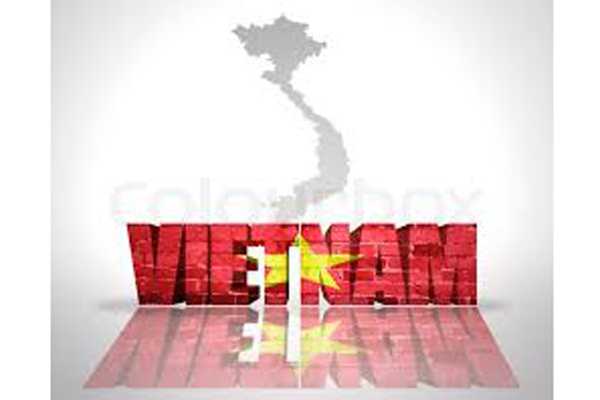It is known that taken separately, the words Viet and Nam could designate either our people or our country. The ethnic group Viet, resulting from the merger of the clans Lac Viet and Au Viet, had created in the first millennium B.C. the first Vietnamese State. Thus, nguoi Viet means the Vietnamese people; and dat Viet the Vietnamese land, Viet Nam. Nguoi Nam means the men of the South, the Vietnamese; nuoc Nam, the country of the South, Vietnam. By contrast, all that is north is Chinese.

The words Viet and Nam put together officially designate our country starting from 1804. However, how long ago does the name Vietnam date before that legal appellation was adopted? This problem has greatly interested both historians and non-historians. Among the latter is Giac Hai, biologist. Recently I had a talk with him in my library.
HUU NGOC - A certain epistemological trend has sought to draw natural sciences and human sciences closer together. How does it come about that you have wandered into the domain of history?
GIAC HAI - It was the result of pure chance. In the course of my biological research in Vietnam, I studied the water buffalo in 1974. When did this beast first appear in our rice fields? Was it descended from tamed local wild buffaloes or had it been introduced from abroad? Why does it not figure on bronze drums, artifacts of our original culture? To find answers to these and other questions I had to delve into a mass of old historical documents.
H.N - And you stumbled upon the word Vietnam?
G.H- Yes, but there were other things. As a parapsychologist I studied the works of Nguyen Binh Khiem, the 16th-century Vietnamese Nostradamus. In both his prose and poetry I found the word Vietnam, which proves that it was anterior to 1804. This aroused my curiosity.
H.N- So, playing the cultural detective, you followed up the scent? What came out of it? I heard about the existence of a book called Vietnam The Chi (Historical Annals of Vietnam) written by Ho Ton Thoc in the 14th century.
G.H - Yes, unfortunately there remains of this work only a foreword, published in a historical work of the 19th century. The word Vietnam can also be found in a 15th-century geographical book and a few pre-1804 works, including those by Nguyen Binh Khiem.
H.N- But given the present state of textual criticism in our country one cannot guarantee the authenticity of such evidence?
G.H- You are right. Only inscriptions on stone stelae are irrefutable proofs. Some dating back to the 16th century have been discovered.
H.N- You yourself were involved in the discovery of a stele on the border with China?
G.H - This was also the result of chance. In 1991 I published an article on the appellation Vietnam. An official of the Ministry of Foreign Affairs wrote me saying that he had seen in Dong Dang a stele with the word Vietnam engraved on it together with the date 1670. Whereupon he had informed two interested organs which, it seems, failed to do anything about it; he had also forgotten the precise locution. You could imagine my joy. I left no stones unturned to organize a field expedition to Lang Son. As I was far from rich.
I had to ask friends for loans to do it. The search for the stele was not easy. We had only vague indications that it had been erected on the slopes of some grassy hill. Alas, the area was full of rolling grassy hills. Eventually, however, a little buffalo boy helped us find the precious slab of stone. Less old than the 16th century, it presented a special interest, because of its location on the frontier. A few lines of verse engraved on it stressed the point:
"This is the gate to Viet Nam The rampart of the North High cliffs between heaven and earth A district implanted in the border."



